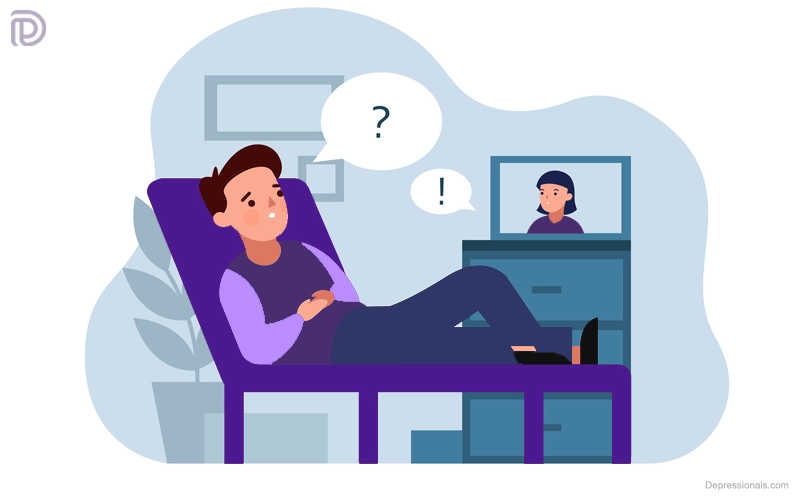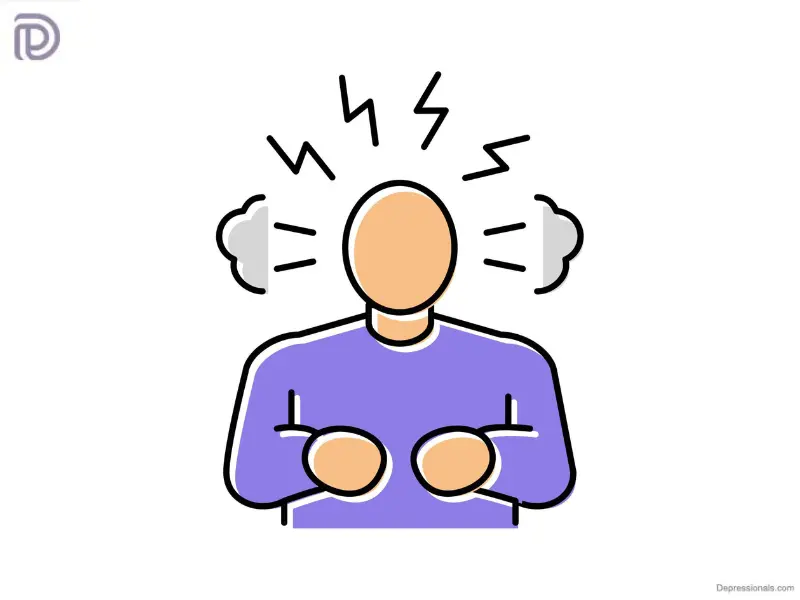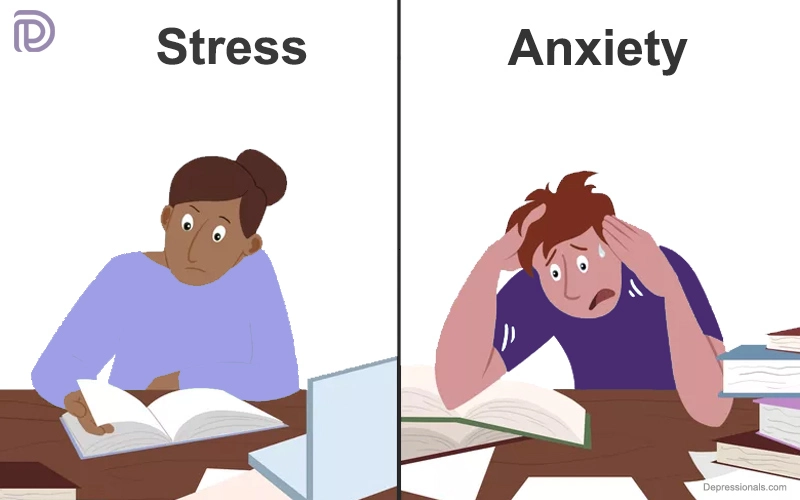What is adjustment disorder (stress response syndrome)?
Adjustment disorder (Stress response syndrome) is a short-term disorder that occurs when you cannot handle or manage a particular source of stress, such as a big change in your life or a loss you are experiencing. According to the mental health diagnostic system, the term “adjustment disorders” was changed to “stress response disorders” in 2013.
Informally, adjustment disorder has also been referred to as “situational depression” because it is associated with fearfulness, feelings of hopelessness and disinterest in work or activities.
Read: Emotional Disorders
Types of adjustment disorder
There are six types of adjustment disorders, each with its own symptoms:
Adjustment disorder with depressed mood
It is common for those diagnosed with this type of adjustment disorder to experience feelings of hopelessness and sadness. There is also a connection with crying. Likewise, you may have stopped enjoying activities you once enjoyed.
Adjustment disorder with anxiety
Adjustment disorder with anxiety is characterized by feelings of overwhelm, anxiety, and worry. It may also affect the ability to concentrate and remember people with this disorder.
Separation anxiety is typically associated with this diagnosis in children.
Adjustment disorder with mixed anxiety and depressed mood
Depression and anxiety are common symptoms of this type of adjustment disorder.
Adjustment disorder with disturbance of conduct
These types of adjustment disorders are characterized by behavior issues such as driving recklessly or getting into fights.
This disorder may lead to teens stealing or vandalizing property. It is also possible that they will start missing school.
Adjustment disorder with mixed disturbance of emotions and conduct
Depression, anxiety, and behavioral problems are associated with this type of adjustment disorder.
Adjustment disorder unspecified
The symptoms of adjustment disorder unspecified are not congruent with those of other adjustment disorders. People often experience physical symptoms as well as problems at work, school, or with their friends and families.
Adjustment disorder vs. Major depression
Major depression has some symptoms in common with adjustment disorder/stress response syndrome. Unlike major depression, an adjustment disorder is frequently not associated with physical and emotional symptoms of clinical depression (e.g., sleep disorders, appetite changes and energy loss) or severe symptoms (e.g., suicidal thoughts).
Adjustment disorder vs. Posttraumatic stress disorder (PTSD)
Posttraumatic stress disorder (PTSD) is different than adjustment disorder/stress response syndrome. The symptoms of PTSD often last for months after a life-threatening event has occurred, in contrast to that of adjustment disorders/stress response syndromes.
The average duration of adjustment disorders/stress response syndromes is typically between 6 and 12 months.
Symptoms of adjustment disorder/stress response syndrome (AD/SRS)

A person with adjustment disorder/stress response syndrome looks at the world differently and feels differently about themselves. Stress results in emotional and/or behavioral symptoms for individuals with AD/SRS.
A typical episode or situation may start causing these symptoms within 3 months after the event or situation ends, and they will usually last up to 6 months after this.
When the reaction to the stressful situation or event exceeds what is expected or typical for the situation or event, it is called adjustment disorder/stress response syndrome. There may be difficulties functioning due to the symptoms; the person may have problems sleeping, working or studying.
Some symptoms may arise that are different from someone’s normal state, such as:
- Feeling of hopelessness
- Sadness
- Frequent crying
- Anxiety (nervousness)
- Worry
- Headaches or stomachaches
- Feeling of an irregular or forced heartbeat (palpitations)
- An inability to interact with people or socialize
- Missing work or school on an irregular basis
- Fighting, reckless driving, and vandalism are all considered out-of-the-ordinary destructive behaviors
- Changing appetites; either eating too much or losing appetite
- Problems sleeping
- Tired or drained
- Drinking or using alcohol more often
Children and teens show behavioral symptoms more often, such as skipping school, fighting or acting out. In contrast, adults exhibit more emotional symptoms, including anxiety and depression.
Check all: Psychological Disorders
AD/SRS causes and risk factors
AD/SRS affects many people, regardless of their gender, age, race or lifestyle. Even though adjustment disorders can occur at any age, they are more common during times of transition, such as adolescence, midlife and old age.
The type of stress that triggers adjustment disorder/stress response syndrome varies from one person to another, but may include:
- Relationships and marriages ending
- Job loss or change
- Loss of a loved one
- Having a serious illness (you or a family member)
- Victimizing a crime
- Having an accident
- Major life changes (such as marriage, having a baby, or retiring)
- Disasters, such as fires, floods and hurricanes
Read: Stress Cardiomyopathy
Diagnosing AD/SRS
See your doctor if you believe you might have AD/SRS. A physician may do a physical examination and ask medical and mental health history questions if you exhibit symptoms.
There are no diagnostic imaging or lab testing methods to confirm this syndrome. However, doctors may order a blood test or imaging test to rule out physical illnesses (such as head trauma) that may cause your symptoms.
You will most likely be referred to a psychiatrist or psychologist when your doctor suspects you will have trouble coping and managing stressful life events. They may also examine you for other mental disorders, such as anxiety disorder, posttraumatic stress disorder or depression.
A diagnosis of AD/SRS is made by the diagnostic criteria in the Diagnostic and Statistical Manual of Mental Disorders (DSM–5):
- You develop a change in psychological or behavioral symptoms within 3 months of experiencing a stressful event
- The level of distress is greater than what would be expected as a reaction to the event
- Having trouble with your personal life, work or school is likely to be significant
- Illnesses or mental disorders without any other symptoms
Recommended: How to help someone with Depression
AD/SRS treatment and Home care
You should seek medical care if you have AD/SRS symptoms. If you have a higher risk of getting mood disorders, adjustment disorder can sometimes transform into a major depressive episode.
Substance abuse can develop when you use alcohol or drugs as a coping mechanism for stress and anxiety.
AD/SRS can be treated by:
- Talk therapy or psychotherapy
- Antidepressants or anti-anxiety medications
- Support groups
- Taking steps to improve your resilience will also make you feel better. Here are some tips:
- Contact your family and friends.
- Make sure your activities have meaning.
- Keep a healthy diet and exercise regularly.
- Sleep well.
- A positive attitude is key.
- Build on your strengths.
- Face your fears.
- Engage in problem-solving.
Recovery is usually complete for people with adjustment disorders. Treatment for adjustment disorder/stress response syndrome can allow individuals to learn new skills that help them function better than before.
Learn: How to cope with stress
Complications
Mental disorders such as anxiety disorders, depression, or substance abuse can develop if adjustment disorders do not resolve.
AD/SRS prevention
The cause and prevention of adjustment disorders/stress response syndrome are unknown. However, a person can cope with a particularly stressful situation or event with the support of family and friends.
A treatment that starts early can help you learn coping skills, make a change in your symptoms, and decrease the duration of your symptoms.
Long-term outlook
When adjustment disorders are treated quickly and correctly, they have a good chance of recovering. It is important that you recover quickly. Typically, people with the disorder do not suffer from it for longer than six months.






Wow that was unusual. I just wrote an extremely long comment but after I clicked submit my comment didn’t show up. Grrrr… well I’m not writing all that over again. Regardless, just wanted to say wonderful blog!
Hey very nice web site!! Man .. Excellent .. Amazing .. I’ll bookmark your website and take the feeds also…I am happy to find a lot of useful info here in the post, we need develop more techniques in this regard, thanks for sharing. . . . . .